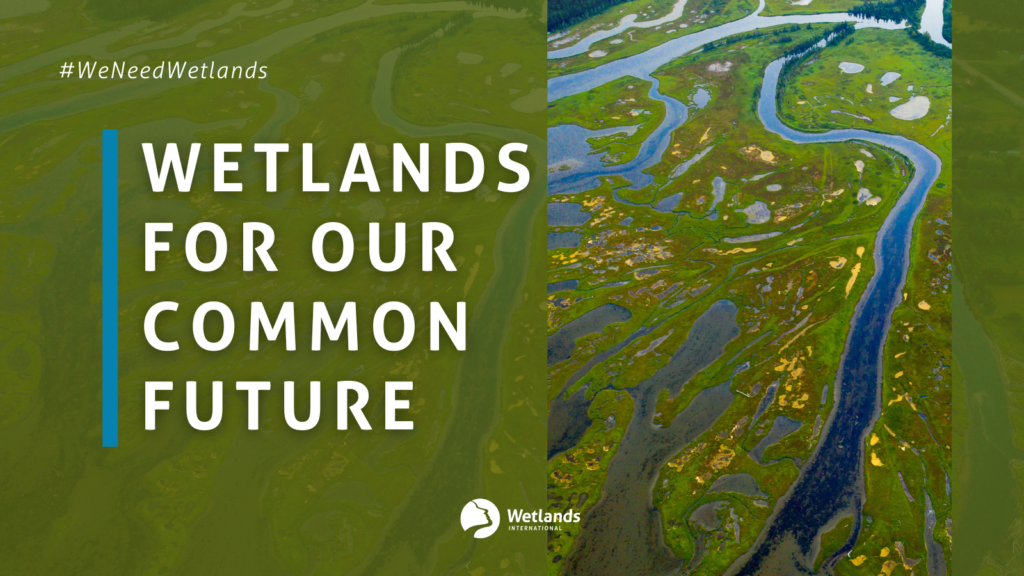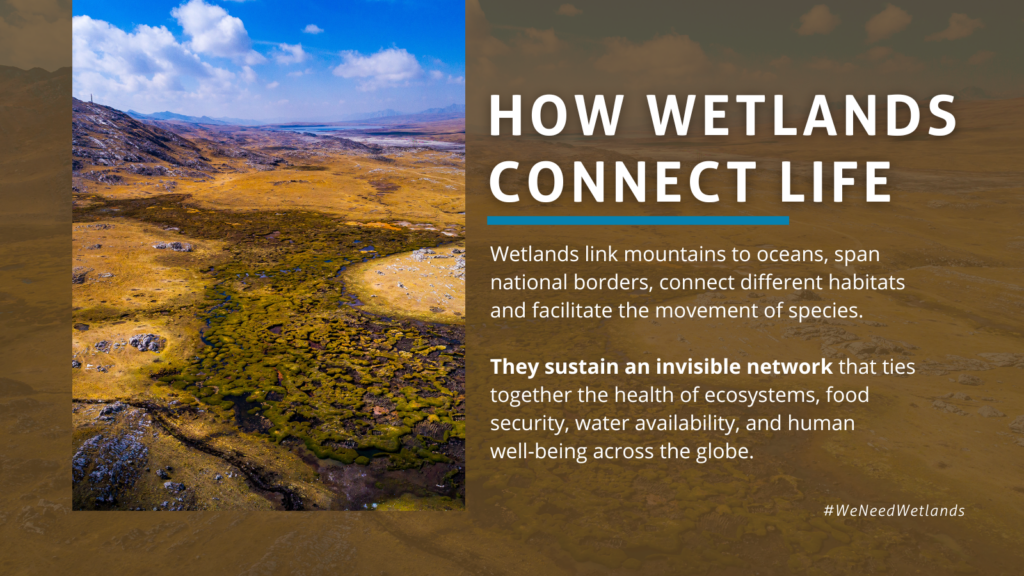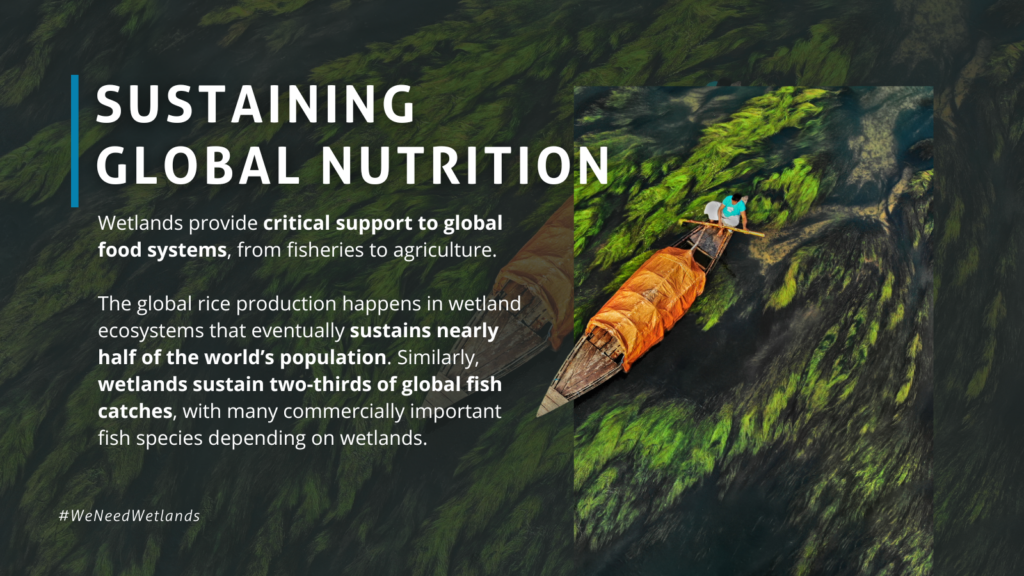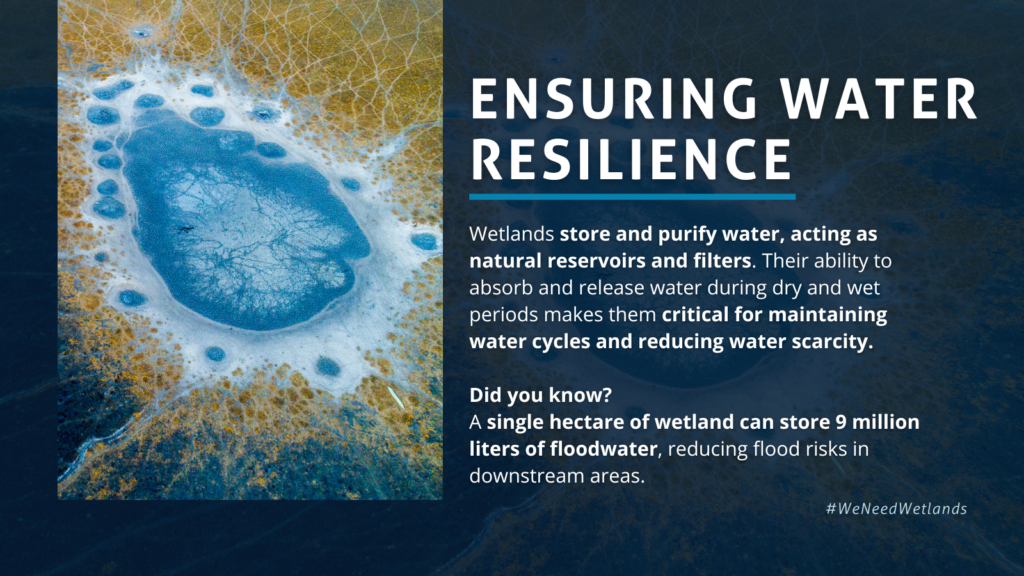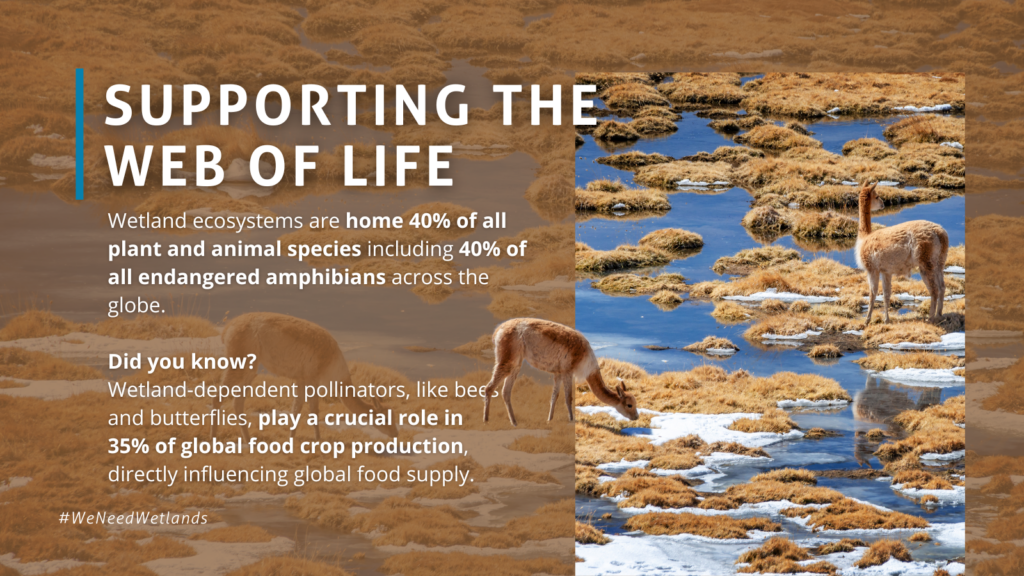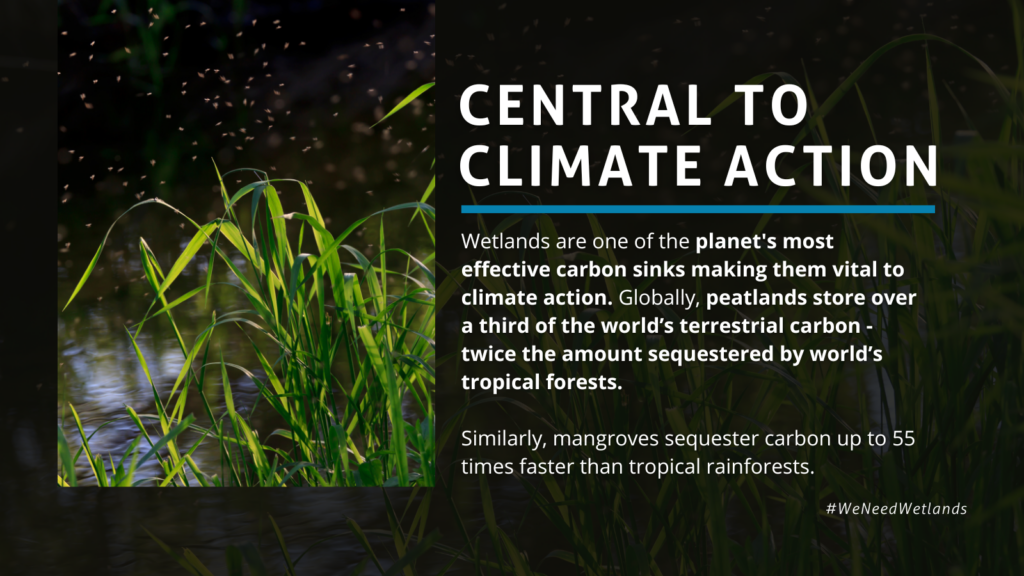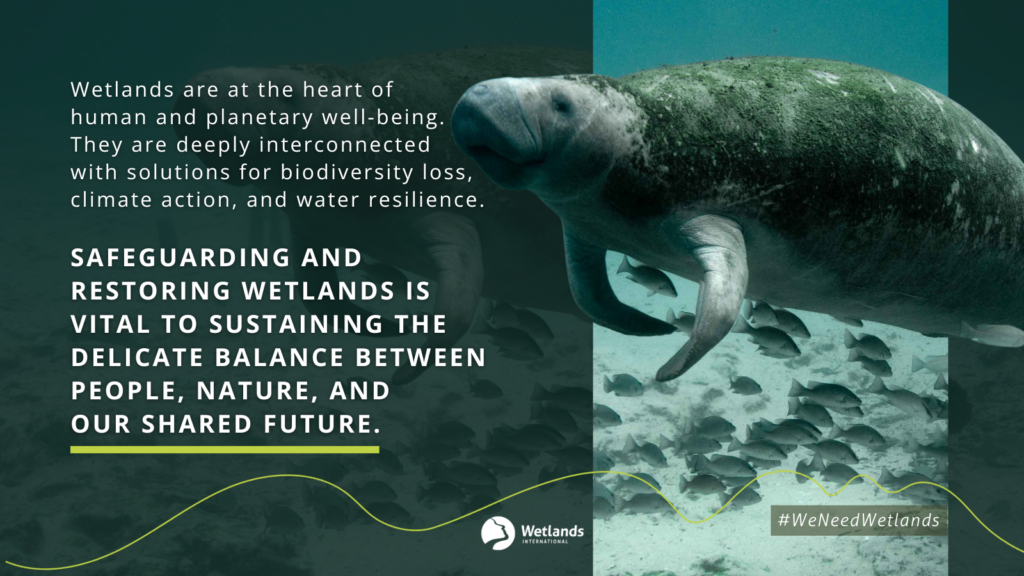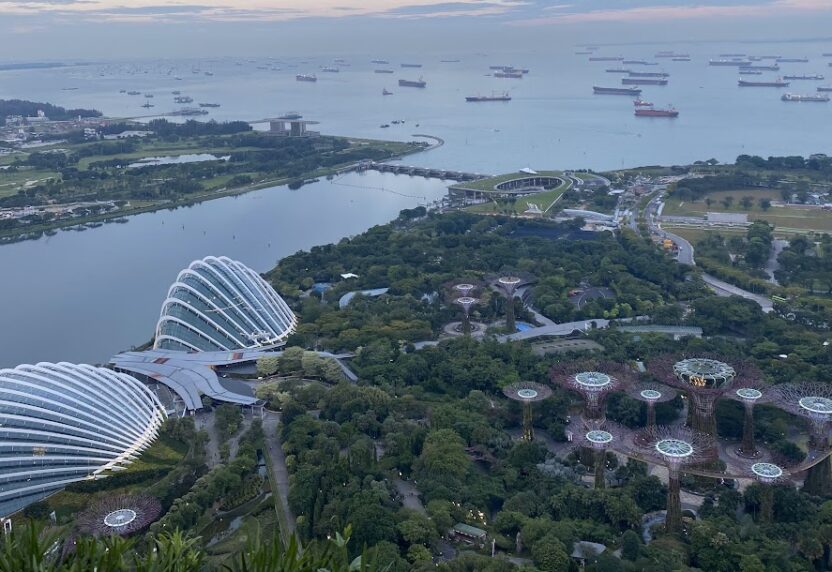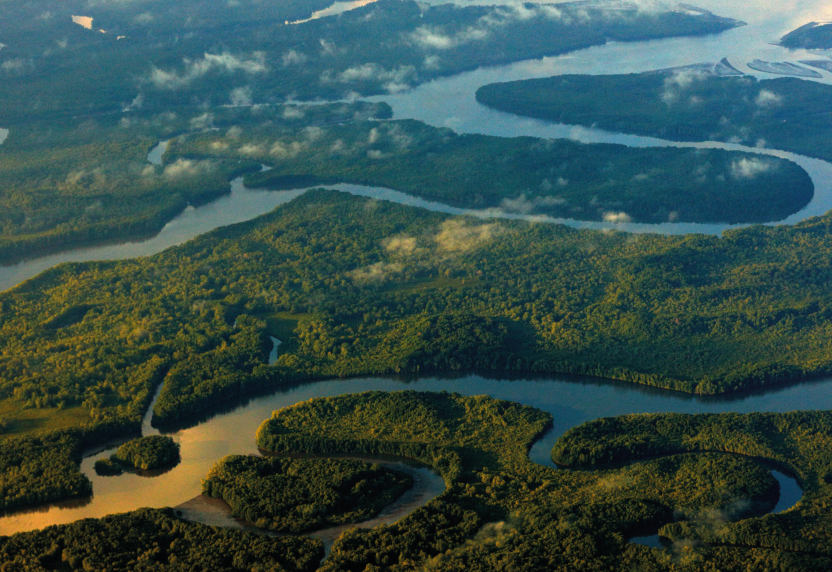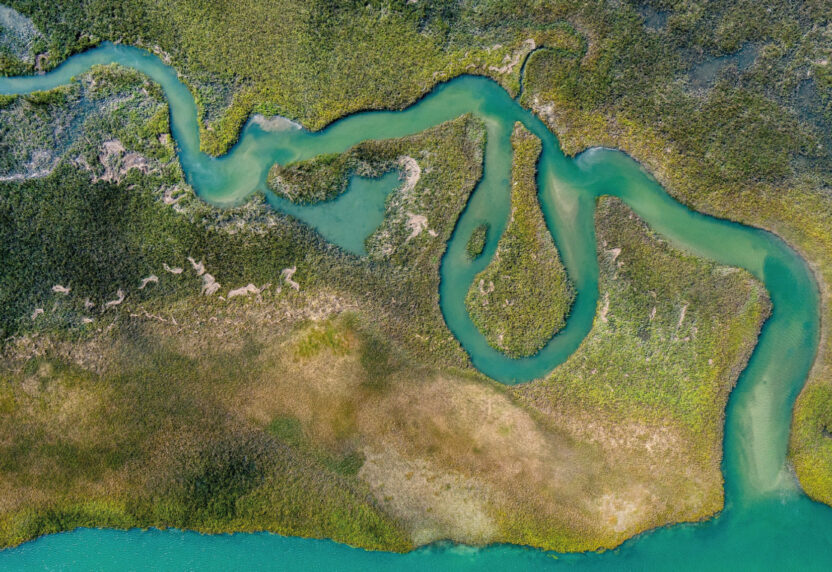
World Wetlands Day: Protecting wetlands for our common future
World Wetlands Day is celebrated each year on 2 February to raise awareness about wetlands. This year’s campaign is “Protecting wetlands for our common future.” Wetlands are at the heart of human and planetary well-being – deeply interconnected with solutions for biodiversity loss, climate action, and water resilience – sustaining the delicate balance between people, nature, and our shared future.
A slideshow with 7 images
The slider is set to loop infinitely.
Wetlands are climate superheroes
Wetland flora are vital to both adaptation and mitigation. Mangrove forests and seagrass meadows protect shorelines from storm surges and sea level rise. Mangroves are also superheroes at capturing and storing carbon. In fact, it is estimated that they store four times more carbon than other tropical forests. Peatlands cover only about 3% of our planet’s land but store approximately twice the amount of carbon than all the world’s forests combined.
Conversely, the loss and degradation of wetlands exacerbates the climate crisis by releasing greenhouse gases and leaving ecosystems, and the people dependent on them, more vulnerable to the effects of climate change.
It’s critical that wetland protection and restoration be recognized as effective nature-based solutions for climate adaptation and mitigation and that they be incorporated into national climate plans.
Wetlands ensure water security
Almost all of the world’s freshwater is drawn directly from wetlands. Wetlands play a crucial role in water purification, storage, and flood control. Peatlands act like sponges – absorbing excess water in times of heavy rainfall, and releasing it slowly in times of drought. Seagrass meadows and mangrove roots remove impurities and saline from seawater. Wetlands are so central to the water cycle, that a world without wetlands would be a world without freshwater. And unfortunately, the climate crisis is also a water crisis.
Wetlands are safe havens for biodiversity
Highly interconnected and biodiverse, wetlands link mountains to oceans, span national borders, connect different habitats and facilitate the movement of species.
Wetlands support 40% of all known plant and animal species. This includes many endangered, threatened and endemic species that can only survive in certain wetland habitats and nowhere else. Freshwater wetlands alone host almost all amphibians, half of the world’s fish species and over one third of vertebrates.
Because of their indispensable role in supporting a wide variety of flora and fauna, healthy wetlands are a critical solution to curb nature loss and should be prioritized in countries’ biodiversity plans.
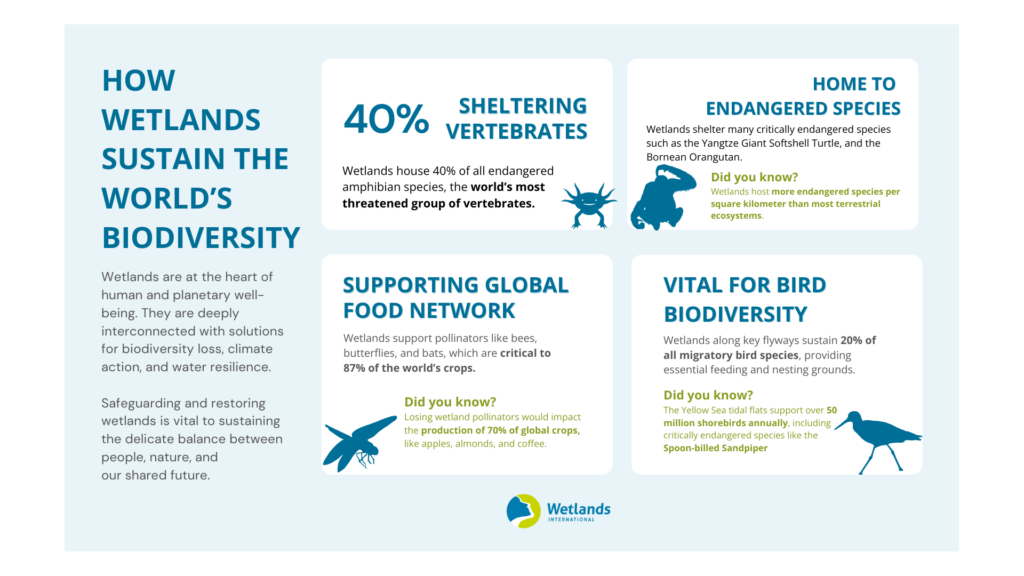
Wetlands at risk
Yet, unsustainable development, pollution and climate change continue to threaten these essential ecosystems. Wetlands are disappearing three times faster than forests. Without immediate action, we risk losing these vital ecosystems and the solutions they offer to some of humanity’s greatest challenges
Wetlands are the linchpin of interconnected ecosystems. Protecting them means addressing the triple crises of climate change, biodiversity loss, and water scarcity through one scalable, nature-based solution.

